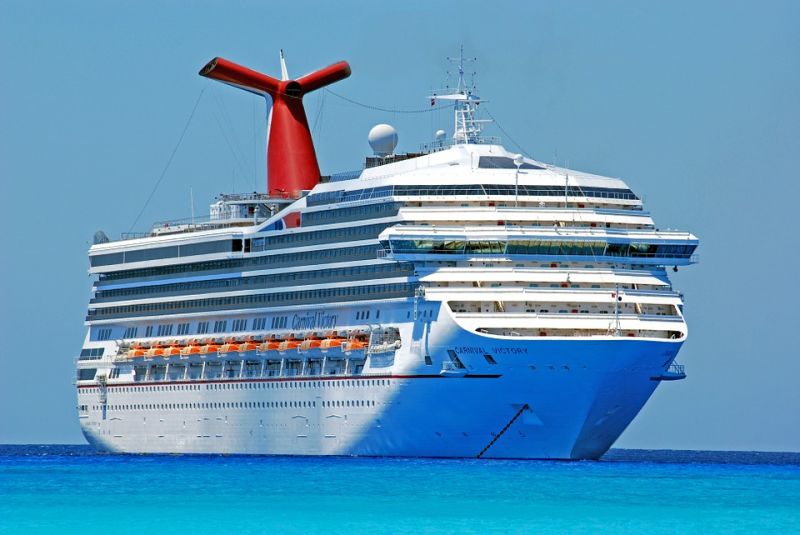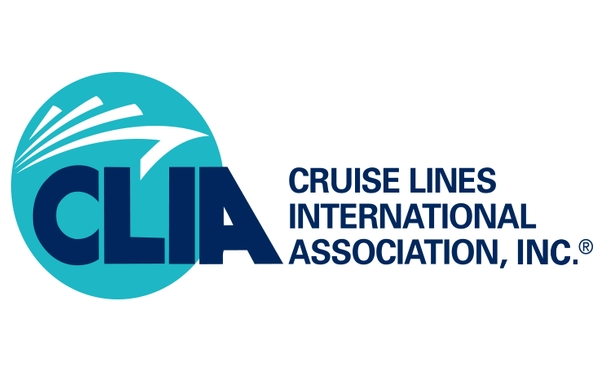Cruise Industry Promotes Eco-Friendly Travel
Published on by Water Network Research, Official research team of The Water Network in Business
From reduced emissions to recycling programs, the cruise industry takes proactive measures to preserve oceans while offering once-in-a-lifetime travel experiences for cruisers worldwide.

Cruise Lines International Association (CLIA), the world’s largest cruise industry trade association, has highlighted some of the earth-friendly initiatives by CLIA Cruise Line Members.
“The cruise industry recognizes the importance of taking active measures to preserve our environment and we are constantly striving to develop more eco-friendly practices that enable travelers to stay ‘green’ while traveling,” said Cindy D’Aoust, president and CEO, CLIA. “Cruise lines have continued to offer new incentives for earth-friendly travel and know that this attention to our own environmental impact is not only beneficial, it is vital.”
From earth-friendly onboard materials to top-of-the-line recycling programs, a variety of cruise lines offer eco-conscious ways to travel, green programs and incentives, including examples such as:
1. Green Policies: Many cruise ships employ “green policies” on land and at sea. These policies include recycling initiatives, waste treatment, and a variety of other programs that are ingrained into the cruise standard practices.
- Seabourn’s green policies include using advanced waste water treatment systems, environmentally friendly cleaning supplies, recycling, and donating items for reuse. The cruise line has increased fuel efficiency of its fleet year over year by investing in newer, more modern ships, which also include low-flow toilets, sinks and showers in all passenger cabins.
2. Dedicated Officers: To keep environmental impact consistently top of mind and high priority, many CLIA Members have established a dedicated, responsible person to oversee the environmental program. Onboard environmental officers oversee daily eco-friendly programs and ensure each ship follows their line’s Earth-friendly practices.
- All Disney Cruise Line ships have dedicated Environmental Officers who are ranked among the most senior leaders on board. Environmental Officers possess previous maritime experience and specialized training in environmental regulations and systems. These leaders monitor the ship’s overall water quality and supply, train all officers and crew members on waste minimization and environmental safety programs and oversee multiple environmental initiatives, including all shipboard recycling efforts.
3. Sustainable Practices: Many cruise lines bolster strong partnerships, both onboard and on shore, with eco-friendly vendors and destinations to introduce travelers to unique experiences while keeping their carbon footprint as minimal as possible.
- Uniworld is committed to supporting environmentally conscious businesses from family-run enterprises to organic wineries in a variety of destinations. The line aims to connect guests with local and sustainable ventures around the world while bringing environmentally-friendly economic opportunity to a variety of regions.
4. Smart Ships: Some cruise lines enhance their savings of energy, water, and fuel through a variety of different smart technologies and tech measures. For example, select ships operate on self-adjusting smart technology that controls lighting and temperature throughout different areas of the ship in order to increase efficiency.
- Carnival Cruise Lines worked closely with the South Coast Air Quality Management District, the City of Long Beach, Calif., and Southern California Edison to facilitate cutting-edge shore power technology in Long Beach, used on the Carnival Inspiration and Carnival Miracle. The line also employs cleaner fuel technology to reduce CO2 and other pollutants.
- When Windstar Cruises’ three sailing yachts—powered by both sails and engines—are able, they power themselves with wind in their billowing sails, allowing the vessels to reduce fuel usage while providing a scenic and memorable cruise experience for guests. When both wind and fuel are used together, the yachts move quickly to their destination, conserving fuel in the process.
- Royal Caribbean International, Quantum-class and Harmony of the Seas, it’s most efficient ship, are equipped with a smart HVAC (heating, ventilation and air conditioning) systems which reduces cooling energy consumption by a quarter.
5. Waste Minimization & Creative Composting: Cruise lines minimize potential waste that comes on board by partnering with suppliers to reduce packaging and some employ onboard composting practices in order to reduce food waste. In stocking the kitchens and pantries of ships, many lines employ sustainable practices and purchase ingredients like seafood and produce only from sustainable vendors.
- In terms of both general garbage waste and food waste, MSC Cruises’ ships are equipped with incinerators, food pulpers, grinders and compactors that maximize efficient garbage processing.
- In May 2015, Costa Cruises became the first travel company to sign the Milan Protocol to reduce food waste, help eliminate hunger and under-nutrition, and raise awareness of the importance of a healthy lifestyle. The Milan Protocol is implemented fleet wide.

6. Solar Sailing: To reduce energy waste and keep cruising eco-friendly, some cruise lines use renewable battery power and solar energy to power some ship’s equipment.
- Onboard their Zambezi Queen ship in Africa, AmaWaterways uses fuel-efficient, low-emission generators during daylight hours, and operates on battery power at night. The ship’s hot water is provided by a solar heating system, and water-saving taps and showers as well as energy-saving lights are used throughout.
7. Cruise for the Earth: For travelers passionate about the environment, many cruise lines offer entire “green” voluntourism itineraries where cruisers can see the world and even help make it a better place. This includes participation in conservation projects onboard and on shore in a multitude of different destinations, sometimes at no additional cost. Many lines also create charity funds and partnership donations to Earth-friendly causes.
- In partnership with World Wildlife Fund (WWF), Azamara Club Cruises—as part of the Royal Caribbean Cruises Ltd family—is taking steps to ensure the long-term health of the oceans by setting ambitious sustainability goals, supporting WWF’s ocean conservation work and featuring WWF guest speakers during select cruises.
- Paul Gauguin Cruises’ new partnership with the Wildlife Conservation Society (WCS) provides two interactive, educational programs to enrich guests’ experience onboard. During different times of year, Stewards of Nature is offered and invites children ages 7 to 17, as well as their families, to discover and value nature through hands-on interactive learning. The Wildlife Discovery Series is an onboard lecture program focusing on the environment and wildlife of our plant presented by some of the world’s most fascinating conservationists, scientists, and oceanographers.
- Celebrity Cruises invites its guests to participate in hands on conservation through the Galapagos Conservancy. Guests sailing onboard Celebrity Xpedition are encouraged to plant trees in support of the Scalescia reforestation effort in Galapagos National Park – to date more than 20,000 trees have been planted.
8. Wildlife Conservation: There are cruise lines that also take proactive measures to reduce damage to not only environment but also wildlife. In addition to volunteer opportunities meant to conserve wildlife habitats, a variety of lines also work to reduce at sea danger for ocean and river life.
- Holland America Line's "Avoiding Whale Strikes" program and its commitment to the conservation of whales have been recognized by the National Oceanic and Atmospheric Administration's (NOAA) National Marine Fisheries Service with a Conservation Partnership Award, part of a newly established Sustainable Fisheries Leadership Awards Program. Holland America Line developed the interactive, computer-based training program designed to avoid whale strikes in cooperation with NOAA and the National Parks Service. All deck officers on Holland America Line vessels have taken the course, and the program is being shared with the cruise and maritime community.
- CLIA, on behalf of the cruise community, is a member of the United for Wildlife Transport Taskforce which is working together to break the chain between suppliers and consumers in illegal wildlife trade throughout the world. In addition, CLIA, Royal Caribbean Cruises, Ltd, and Carnival Corporation & plc are all members of the US Wildlife Trafficking Alliance that is working together to reduce the purchase and sale of illegal wildlife products in the United States.
9. Proper Disposal: In order to keep oceans and rivers clean, cruise lines urge proper disposal of wastes with both crew and passengers. Additionally, many cruise lines offer recycling programs for both passengers and crew that go beyond paper and plastic to recycle and reuse additional materials such as glass, aluminum, scrap metal, cooking oil, petroleum oil, toner cartridges, electronics, and certain chemical liquids. Lines use training and reward programs to incentivize crew in recycling and reuse practices.
- As part of its “Crystal Clean” environmentally friendly initiatives, Crystal Cruises has a robust communications campaign to foster onboard environmental education and responsibility.
10. Smarter Sewage: In sewage and water waste disposal, many lines have instituted cutting edge technologies created to minimize waste and lessen the environmental impact of cruise travel.
- To compliment a variety of onboard recycling systems in place on ships, Avalon Waterways has installed a specialized onboard sewage treatment system that utilizes a multi-step procedure.
Cruise travelers can pitch in as well by reusing towels and linens; utilizing onboard recycling and composting features; using refillable water bottles and drink containers; bringing reusable shopping bags; avoiding throwing any waste or items overboard; and being environmentally mindful at every cruise destination.
Source: Globe Newswire
Media
Taxonomy
- Water Footprint
- Wastewater Collection
- Environment
- Water Management
- Water Resource Management
- Environmental Impact
- Ecotourism
- Responsible Tourism
- Water & Wastewater
- Ships